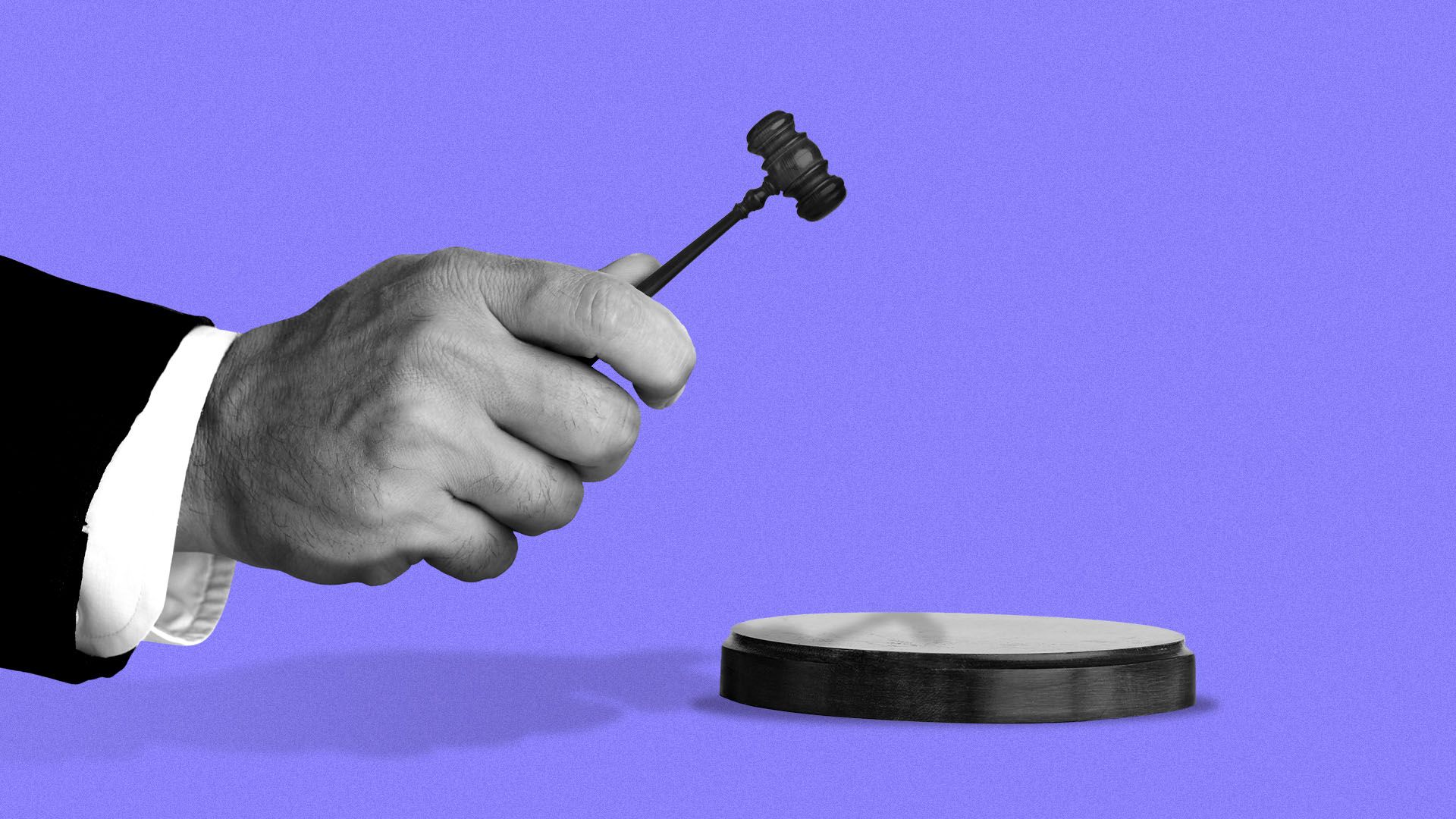Trump vs. the WTO
Add Axios as your preferred source to
see more of our stories on Google.

Illustration: Sarah Grillo/Axios
Internationalists have always dreamed of a court with jurisdiction over all the countries of the world. In 1995, the World Trade Organization was created — allowing the world's countries to press claims against one another for the first time.
The state of play: That era lasted just 25 years. As of Tuesday, the Trump administration has, to all intents and purposes, brought it to an end.
Why it matters: When Trump defangs the WTO, almost every country will be hurt, including the U.S., which won a record $7.5 billion WTO award in October after it sued Europe for granting illegal subsidies to Airbus.
How it works:
- By blocking all new appointments to the World Trade Organization's dispute-resolution court, President Trump has allowed it to decline from seven members to three; after two more terms expire today, the court will be left with just one remaining judge.
- That's not enough for the court to issue a binding ruling.
- From now on, countries will be able to appeal any ruling they don't like to the WTO's highest court. Since that court will have no power to rule against them, they'll be left free to continue infringing any WTO rule they want.
Flashback: For some 350 years — from the Treaty of Westphalia in 1648, which marked the beginning of the modern system of nation-states — no such court existed.
- Then, in 1995, the World Trade Organization was created.
- For the first time ever, the world's countries could take one another to court.
Be smart: "America First," if Trump's slogan means anything, implies an expansion of unilateralism at the expense of the kind of multilateralism exemplified by the WTO, which marked a post-Cold War high point of international cooperation.
What they're saying: Carla A. Hills was U.S. Trade Representative when the WTO was created (under President George H.W. Bush). She tells Axios that "we've delivered a debilitating hit" to the WTO.
- The WTO is already being replaced, she says, by plurilateral arrangements like the Trans Pacific Partnership (which continues without U.S. involvement) and RCEP, the China-dominated Regional Comprehensive Economic Partnership.
- The U.S. Trade Representative's office referred Axios to a statement made Monday by Dennis Shea, the U.S. ambassador to the WTO. Shea's main complaint is that the WTO court hasn't been abiding by its own rules, as laid down in 1995.
Winners: Donald "Tariff Man" Trump (his words) can now impose whatever tariffs he likes, without fear that the WTO might find them to be illegal.
Losers: Britain in particular stands to be a big loser post-Brexit, since WTO rules are the backstop default option in the event of a "hard Brexit." If those rules are worthless, Britain will have even less negotiating leverage against trading partners like the U.S. and the EU.
Reality check: As Eurasia Group president Ian Bremmer tells Axios, "multilateral institutions really resist dismantling." When Americans see that other countries — like Germany and Canada — have preferential access to Japan's markets while they don't, they are going to demand a leveling of the playing field.
My thought bubble: The WTO was negotiated before China dominated international trade, and before the internet disrupted all global commerce. A new agreement is desperately needed, and while there's no way that Donald Trump and Robert Lighthizer, the current U.S. Trade Representative, will negotiate such a deal, Trump's successor might yet be able to.
